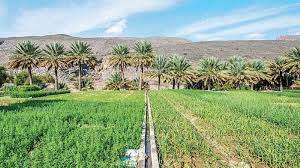There are many crops that are grown in Balochistan.
With a sizable tract of cultivable rich land and a geostrategic location, Balochistan, which makes up 47% of Pakistan’s landmass, is a promising region with a wide range of potential for agriculture output and investment. 3.22 million ha are now under cultivation, leaving about 3.83 million ha accessible for agriculture.
All types of crops, including wheat, rice, cotton, pulses, oilseed crops, and fruits including grapes, cherries, almonds, peaches, pomegranates, apricots, apples, and dates, are appropriate for cultivation in Balochistan. It is important to note that Balochistan produces a wide variety of veggies all year long because of the varied climate.
There are many investment opportunities in the Agricultural sector of Balochistan
The province has a large expanse of exceptionally fertile land that can be leased to interested parties with incentives for the creation of commercial farms for agriculture.
Cold storage
For storing fruits and other products for longer periods of time, cold storage are highly sought after. Perishable goods like apples, cherries, grapes, plums, peaches, tomatoes, and other products must be transported quickly and refrigerated in order to avoid waste and extend the time available for marketing in Punjab, Karachi, Islamabad, and potential exports. This will help them gain national and international market share. Currently, Balochistan lacks cold storage facilities and cool chains, which causes perishable goods like fruits and vegetables to decay. The business climate in Balochistan is favorable
Food Processing
Numerous areas of land, particularly in Balochistan’s upland districts, are well known for producing deciduous fruits, but there are no back-end industries where these fruits may be processed and high-value food products manufactured.
Another opportunity awaiting private investors is value addition in various fruits and vegetables. From the crops grown in the province, a wide range of products, including jam, jellies, juice, syrups, paste, and ketchup, can be effectively produced. To access marketable brands, reputable companies that are currently in operation may be encouraged to launch joint ventures with local investors.
Additionally, it has been noted that horticultural value chains, in particular, have a competitive edge in Balochistan, particularly for fruits and vegetables including apples, grapes, apricots, dates, and tomatoes. Farmers may be invited to partner with investors and food firms to improve production, product quality, processing, added value activities, and marketing.
Tunnel Farming
Balochistan’s environment makes it an ideal location for high-value tunnel farming. a farming method that offers high financial and economic returns on investments but requires relatively little original cash. In order to generalize this precision farming method for growing high-value, low-delta crops, spices, and herbs, the department of agriculture has already tapped supplies from the federal government. This area may be open to investment.
Olive Cultivation
In Balochistan, there are various agricultural areas that are ideal for olive plantations. According to a recent analysis, Balochistan produces olives with high oil content and nutritional value. Balochistan’s production of olive fruit has a high oil content, which guarantees investors excellent financial returns, making it a fruit crop suitable for corporate farming.
Cotton Cultivation
Balochistan’s cotton has received widespread praise for being organic cotton with the extra benefits of having a long staple, a high luster, and being free of contamination. Investors may be invited to participate in cotton farming, which might result in the production of cotton with a high level of value and quality on a global scale.
Fodder production
Balochistan, which is blessed with five distinct agro-cultural zones, is a location where year-round production of fodder can be secured. This fodder can be used for the province’s livestock as well as exported to the Gulf countries, where there is a significant increase in demand for green fodder.
Click here for more Blogs
Click here for more Videos
 Shalkot The Innovators
Shalkot The Innovators




